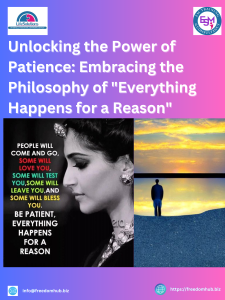 The concept of “binding and loosing” is one that is often referenced in religious and spiritual contexts, but its meaning and significance can be somewhat elusive. The idea is that by binding something, you are prohibiting or restricting it, and by loosing something, you are allowing or setting it free. But what does this really mean? How can we apply this concept to our lives, and how can it help us unlock our own inner power? In this post, we will explore the meaning of binding and loosing, its historical and cultural significance, and its relevance to our modern lives. We will delve into the power of our thoughts, words, and actions, and how they can shape our reality. Join us as we embark on a journey of self-discovery and learn how to unlock the power within.
The concept of “binding and loosing” is one that is often referenced in religious and spiritual contexts, but its meaning and significance can be somewhat elusive. The idea is that by binding something, you are prohibiting or restricting it, and by loosing something, you are allowing or setting it free. But what does this really mean? How can we apply this concept to our lives, and how can it help us unlock our own inner power? In this post, we will explore the meaning of binding and loosing, its historical and cultural significance, and its relevance to our modern lives. We will delve into the power of our thoughts, words, and actions, and how they can shape our reality. Join us as we embark on a journey of self-discovery and learn how to unlock the power within.
1. Introduction: Understanding the concept of binding and loosing
In order to fully grasp the power within the concept of binding and loosing, it is essential to delve into its meaning and significance. Binding and loosing, although commonly associated with religious or spiritual contexts, can be applied to various aspects of life.
At its core, binding refers to the act of restricting or limiting something, while loosing implies freeing or releasing. These concepts can be seen as tools for exercising authority and control over certain matters, whether they are personal, professional, or even societal.
In religious contexts, binding and loosing often pertain to the authority to prohibit or permit certain actions or behaviors within a community. This authority is believed to be granted by a higher power, allowing individuals or leaders to make decisions that impact the lives of others.
However, binding and loosing can also be understood from a more personal perspective. It suggests that individuals have the power to bind or restrict themselves from harmful habits or negative thought patterns, while also having the ability to loose or free themselves from these constraints. This interpretation empowers individuals to take control of their own lives, steering them towards growth and self-improvement.
Moreover, binding and loosing can extend beyond personal spheres, influencing social dynamics and collective actions. It highlights the responsibility individuals have in shaping the world around them. By binding harmful ideologies or practices and loosing positive and inclusive values, individuals can contribute to creating a more harmonious and progressive society.
In this blog series, we will explore the multifaceted concept of binding and loosing, examining its historical and religious origins while also delving into its practical applications in everyday life. By understanding the power within these concepts, we can unlock a new level of personal and collective growth, enabling us to shape our own destinies and positively impact the world around us.
2. Historical and biblical origins of binding and loosing
To truly understand the power and significance of binding and loosing, it is essential to delve into its historical and biblical origins. This concept finds its roots in ancient Jewish traditions and is mentioned in the New Testament.
In the Jewish context, binding and loosing referred to the authority given to rabbis and religious leaders to interpret and apply the law. It involved making decisions on matters of religious practice, ethics, and even legal disputes. This authority was seen as a divine mandate, with the belief that God would honor these decisions.
In the New Testament, Jesus speaks about binding and loosing in the context of his disciples and the church. In Matthew 16:19, Jesus says to Peter, “I will give you the keys of the kingdom of heaven, and whatever you bind on earth shall be bound in heaven, and whatever you loose on earth shall be loosed in heaven.”
This statement by Jesus suggests that he was passing on the authority to make decisions and declarations that would have a spiritual impact. It is important to note that this authority is not meant to be arbitrary or for personal gain, but rather to align with God’s will and purposes.
Throughout the centuries, theologians and scholars have debated the exact meaning and scope of binding and loosing. Some interpret it as the power to pronounce forgiveness or to exercise spiritual discipline. Others see it as the authority to make doctrinal decisions or to engage in spiritual warfare.
Regardless of the specific interpretation, the concept of binding and loosing underscores the responsibility and power entrusted to believers in their relationship with God. It emphasizes the importance of discernment, prayer, and seeking God’s guidance in making decisions and taking action.
Understanding the historical and biblical origins of binding and loosing provides a solid foundation for exploring its relevance and application in our lives today. It invites us to reflect on the significance of our words, actions, and spiritual authority as we seek to align ourselves with God’s purposes and unleash the power within us.
3. Exploring the meaning of binding: What does it entail?
When it comes to exploring the concept of binding, it is essential to delve into its true meaning and significance. Binding can be seen as a powerful tool that holds the ability to create a sense of connection, restraint, or obligation. In various contexts, binding can encompass a wide range of interpretations, from physical constraints to emotional ties.
In a literal sense, binding may involve the act of fastening or securing objects together. It could be the binding of a book, where pages are attached to form a cohesive whole. This physical binding ensures that the contents remain intact, protected, and easily accessible. Similarly, the binding of wounds with bandages promotes healing, providing support and preventing further damage.
However, binding extends beyond the physical realm and often transcends into the figurative and metaphorical aspects of our lives. Emotionally, binding can represent the deep bonds we form with others, such as family, friends, or partners. These connections create a sense of unity, support, and loyalty that can withstand the tests of time.
In certain situations, binding can also imply a sense of obligation or commitment. It involves the establishment of rules, agreements, or contracts that hold individuals accountable for their actions. This form of binding ensures that promises are kept, responsibilities are fulfilled, and trust is maintained.
Moreover, binding can be seen as a spiritual or religious practice. It may involve rituals, ceremonies, or prayers aimed at uniting individuals with higher powers or divine forces. This spiritual binding seeks to establish a connection, seek guidance, and find solace in something greater than ourselves.
Understanding the multifaceted nature of binding allows us to appreciate its potential and significance in various aspects of life. It invites us to reflect on the bonds we create, the commitments we make, and the sense of connection we yearn for. By exploring the meaning of binding, we can unlock the power within ourselves to foster stronger relationships, honor our obligations, and embark on a path of growth and self-discovery.
4. Understanding the power of loosing: How does it work?
Understanding the power of loosing is a fascinating concept that holds significant meaning and potential. Loosing, in its essence, refers to the act of releasing or freeing oneself or others from certain limitations or restrictions. It is a powerful tool that allows us to unlock our true potential and embrace a sense of liberation.
To comprehend how loosing works, it is crucial to delve into its deeper meaning. Loosing operates on multiple levels – personal, emotional, and even spiritual. At its core, it involves breaking free from self-imposed constraints, negative thought patterns, and limiting beliefs that hold us back from reaching our goals.
On a personal level, loosing empowers individuals to let go of fear, doubt, and insecurities that hinder personal growth. It encourages one to step out of their comfort zone, explore new horizons, and embrace their unique talents and abilities. By shedding the shackles of self-doubt, individuals can tap into their inner strength and unleash their full potential.
Emotionally, loosing enables us to release past traumas, grudges, and emotional baggage that weigh us down. It invites forgiveness, healing, and the ability to move forward with a renewed sense of freedom and emotional well-being. By letting go of emotional burdens, we create space for positivity, joy, and inner peace to flourish.
From a spiritual perspective, loosing encompasses transcending the limitations of the ego and aligning oneself with higher consciousness. It involves surrendering to the divine flow of life, trusting in the universe, and embracing a sense of interconnectedness with all beings. Through this spiritual surrender, individuals can tap into a source of infinite wisdom, guidance, and inspiration.
Practically applying the power of loosing involves introspection, reflection, and conscious effort. It requires identifying the areas in our lives where we feel restricted or held back and making a conscious decision to release those constraints. This could involve letting go of self-limiting beliefs, negative relationships, or unhealthy habits.
In conclusion, understanding the power of loosing opens doors to endless possibilities for personal growth, emotional healing, and spiritual awakening. By embracing the concept of loosing, we can break free from the chains that bind us and unlock the immense power within ourselves. Letting go is not about losing control but rather gaining the freedom to soar to greater heights and live a truly fulfilling life.
5. Practical applications of binding and loosing in daily life
Binding and loosing are powerful concepts that can have practical applications in our daily lives. While often associated with religious or spiritual contexts, these principles can be applied in a broader sense to help us navigate through various aspects of life.
One practical application of binding and loosing is in the realm of personal relationships. We all encounter conflicts and disagreements with loved ones or colleagues from time to time. By understanding the concept of binding and loosing, we can learn to bind negative emotions such as anger, resentment, or grudges that may hinder the progress of our relationships. Instead, we can choose to loose forgiveness, empathy, and understanding, allowing room for reconciliation and growth.
In a professional setting, binding and loosing can be applied to enhance productivity and harmony within a team. When faced with challenges or setbacks, it is easy to become bound by discouragement or doubt. However, by consciously choosing to bind negativity and instead loose positive attitudes, problem-solving skills, and teamwork, we can create a more supportive and solution-oriented work environment.
Binding and loosing can also be applied to our own personal development and self-improvement. Often, we may find ourselves bound by self-limiting beliefs or negative self-talk that hinder our growth and potential. By recognizing these limitations and intentionally binding them, we can free ourselves to explore new possibilities and unlock our true potential. Additionally, we can loose self-compassion, self-confidence, and self-care, allowing for personal growth and fulfilling experiences.
In summary, the practical applications of binding and loosing are vast and can be applied to various aspects of our lives. By consciously choosing to bind negativity and loose positive attributes, we can create healthier relationships, enhance productivity, and foster personal growth. Unlocking the power within through the understanding and practice of binding and loosing can truly transform our lives for the better.
6. The role of faith and belief in the process
Faith and belief play a crucial role in the process of binding and loosing. When we talk about binding and loosing, we are referring to the spiritual authority to prohibit or permit things in accordance with God’s will.
Having faith is essential because it is the foundation upon which this process operates. It is through our faith and belief that we tap into the power within and connect with the divine. When we have unwavering faith in God’s promises and trust in His guidance, we open ourselves up to the supernatural realm where binding and loosing take place.
Belief goes hand in hand with faith. We must believe in the power of binding and loosing and the authority that has been given to us as believers. It is through our belief that we activate this power and bring about transformation in our lives and the lives of others.
However, it is important to note that faith and belief alone are not enough. They must be accompanied by action. We must actively engage in the process of binding and loosing through prayer, declaration, and spiritual warfare. By aligning our thoughts, words, and actions with the will of God, we can bring about powerful changes in our circumstances and see the manifestation of God’s promises.
In essence, faith and belief are the driving forces behind the process of binding and loosing. They empower us to access the supernatural realm, tap into God’s authority, and bring about transformation in our lives through prayer and action. As we continue to deepen our faith and strengthen our belief, the power within us to bind and loose will be unlocked, enabling us to experience the fullness of God’s blessings and purposes in our lives.
7. Potential misconceptions and challenges associated with binding and loosing
While binding and loosing can be powerful tools for spiritual growth and transformation, it is important to address potential misconceptions and challenges that may arise in their practice.
One common misconception is the belief that binding and loosing give individuals complete control over every aspect of their lives. It is crucial to understand that binding and loosing are not intended to override personal responsibility or the natural consequences of one’s actions. Instead, they serve as tools to align oneself with divine will and seek guidance and support from a higher power.
Another challenge that may arise is the temptation to misuse binding and loosing for personal gain or to manipulate others. It is essential to approach these practices with integrity and a genuine desire for the highest good of all involved. Using binding and loosing for selfish purposes can lead to negative karmic consequences and disrupt the balance of energy.
Additionally, understanding the nuances and complexities of binding and loosing can be challenging, especially for those who are new to these concepts. It is important to seek guidance from experienced practitioners, spiritual teachers, or mentors who can provide wisdom and support along the journey.
Lastly, it is crucial to approach binding and loosing with humility and respect for the divine forces at play. Recognize that while we can participate in the process, ultimate control lies with a higher power. Surrendering to this higher wisdom and trusting in the divine plan can help navigate any challenges that may arise.
By addressing these potential misconceptions and challenges, individuals can approach the practice of binding and loosing with clarity, authenticity, and a reverence for the spiritual journey they are embarking on.
8. The significance of intention and spiritual discernment
When it comes to the practice of binding and loosing, intention and spiritual discernment play a significant role. Binding and loosing, rooted in ancient spiritual traditions, involves the ability to manifest change and influence the spiritual realm through words, actions, and intentions.
Intention is the driving force behind binding and loosing. It is the conscious decision to invoke spiritual power and direct it towards a specific purpose. Without clear and focused intention, the practice may lack the desired impact. Intention serves as the compass, guiding the energy and shaping its manifestation.
Spiritual discernment is equally important in the practice of binding and loosing. It is the ability to perceive and understand the spiritual forces at work, discerning between positive and negative energies, and aligning oneself with the highest good. Developing spiritual discernment allows one to navigate the complexities of the spiritual realm, ensuring that the binding and loosing practices are used ethically and responsibly.
The significance of intention and spiritual discernment lies in their ability to harness the power within and channel it towards positive transformation. By setting clear intentions and cultivating spiritual discernment, practitioners can create a sacred space where they can tap into their inner power and connect with divine energies.
It is essential to approach binding and loosing with humility, respect, and a deep understanding of the potential consequences. Intention and spiritual discernment act as guiding principles, ensuring that the practice is grounded in love, compassion, and the pursuit of spiritual growth. When utilized with wisdom and integrity, binding and loosing can unlock the transformative power within, leading to personal and spiritual evolution.
9. Personal testimonies and experiences with binding and loosing
Personal testimonies and experiences with binding and loosing are powerful and compelling. They provide real-life examples of how individuals have tapped into the power within themselves to bring about positive change and transformation in their lives.
When it comes to binding, many people have shared stories of using this spiritual practice to release themselves from negative influences or patterns that were holding them back. Whether it was breaking free from unhealthy relationships, overcoming addictive behaviors, or letting go of limiting beliefs, the act of binding allowed them to reclaim their personal power and create a new path for themselves.
On the other hand, loosing has been described as a transformative process of setting oneself free from emotional baggage, past traumas, or self-imposed limitations. People have shared how they have used this practice to release fear, self-doubt, and insecurities, allowing them to step into their full potential and embrace a life of abundance and fulfillment.
These personal testimonies serve as a source of inspiration and encouragement for those who are seeking to unlock their own power within. They remind us that we have the ability to shape our own destinies and create the life we truly desire.
It is important to note that personal testimonies and experiences with binding and loosing may vary from person to person. What works for one individual may not work for another, as each person’s journey is unique. However, by sharing these stories, we can gain insights, strategies, and inspiration that can assist us on our own path of self-discovery and empowerment.
If you are considering incorporating binding and loosing into your own spiritual practice, hearing personal testimonies can provide guidance and inspiration. It is always important to approach these practices with an open mind and a willingness to explore and adapt them to your own beliefs and experiences.
Remember, the power lies within you, and by embracing the practices of binding and loosing, you can unlock your full potential and create a life of joy, abundance, and spiritual fulfillment.
10. Conclusion: Embracing the power within and unlocking our potential
In conclusion, embracing the power within and unlocking our potential is a transformative journey that requires self-reflection, courage, and a willingness to challenge our own limitations. Binding and loosing, as ancient practices rooted in spirituality and personal growth, offer us a powerful framework to tap into our inner strength and make positive changes in our lives.
By binding, we have the ability to let go of negative thoughts, self-doubt, and limiting beliefs that hold us back from reaching our full potential. This process involves acknowledging and releasing the weight of past experiences and embracing forgiveness, both for ourselves and others. Through binding, we can free ourselves from the chains of fear, insecurity, and self-sabotage, allowing us to move forward with greater clarity and confidence.
On the other hand, loosing enables us to unleash our innate abilities, passions, and talents. It is about recognizing our unique gifts and nurturing them to their fullest expression. This involves cultivating self-awareness, setting meaningful goals, and taking intentional action steps towards personal and professional growth. By loosing, we tap into our creativity, resilience, and authenticity, opening doors to new opportunities and possibilities.
Ultimately, by embracing the power within and actively engaging in the practices of binding and loosing, we can unlock our true potential and live a more purposeful and fulfilling life. It is a continuous process that requires dedication, self-care, and a commitment to personal development. As we embark on this journey, let us remember that we have the power within us to shape our own destinies and create a positive impact in the world. So, let us dare to dream, embrace our uniqueness, and unleash the boundless potential that resides within each and every one of us.
We hope you found our blog post on the meaning of binding and loosing thought-provoking and enlightening. Understanding the concept of binding and loosing can empower you to take control of your own life and make positive changes. By recognizing the power within you to bind negative influences and loose positive energies, you can unlock your true potential and create a life filled with peace, joy, and fulfillment. Remember, you hold the key to your own destiny.
I would love to receive your comments. For more, you may check out on my membership site.



